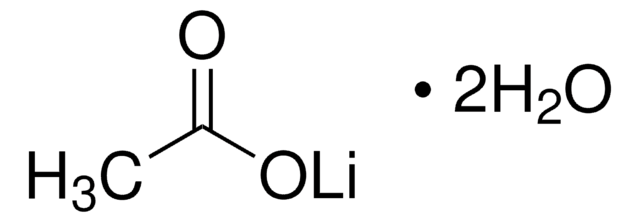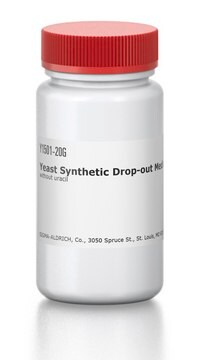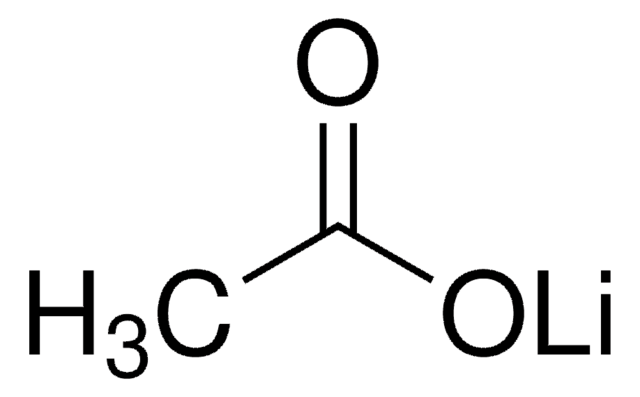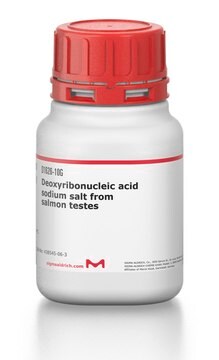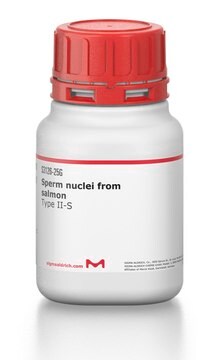YEAST1
Yeast Transformation Kit
reagents for introducing plasmid DNA into yeast
Synonym(s):
lithium acetate yeast transformation
About This Item
Recommended Products
grade
for molecular biology
Quality Level
usage
kit sufficient for >100 standard transformations
technique(s)
transformation: suitable
shipped in
dry ice
storage temp.
−20°C
Related Categories
General description
Application
Features and Benefits
- Easy and ready-to-use
- Requires as little as 10 ng of plasmid DNA
- Flexibility for any strain of yeast
- Sufficient for over 100 standard transformations
Components
- Transformation Buffer; 100 ml; 100 mM lithium acetate, 10 mM Tris HCl, pH 7.6, and 1 mM EDTA
- Plate Buffer; 100 ml; 40% PEG, 100 mM lithium acetate, 10 mM Tris HCl, pH 7.5, 1 mM EDTA
- Deoxyribonucleic acid from salmon teste, 10 mg/ml; 2 x 1 ml
- Control Yeast Plasmid DNA pRS316 carrying the ura gene; 10 μg
- Yeast Synthetic Drop-out Medium Supplement Without Uracil; 1 g
Principle
related product
Storage Class Code
10 - Combustible liquids
Flash Point(F)
Not applicable
Flash Point(C)
Not applicable
Choose from one of the most recent versions:
Already Own This Product?
Find documentation for the products that you have recently purchased in the Document Library.
Customers Also Viewed
Articles
Transformation is the process by which exogenous DNA is introduced into a cell, resulting in a heritable change or genetic modification. This was first reported in Streptococcus pneumoniae by Griffith in 1928. Transforming principle of DNA was demonstrated by Avery et al. in 1944.
The development of genetic engineering and cloning has opened many possibilities of expression and isolation of heterologous proteins for research purposes. Considerable advances in technology have enabled expression and isolation of recombinant proteins in large scale.
Protocols
The selection of plasmids in yeast is based on the use of auxotrophic mutant strains, which cannot grow without a specific medium component (an amino acid, purine, or pyrimidine)
Yeasts are considered model systems for eukaryotic studies as they exhibit fast growth and have dispersed cells.
Our team of scientists has experience in all areas of research including Life Science, Material Science, Chemical Synthesis, Chromatography, Analytical and many others.
Contact Technical Service